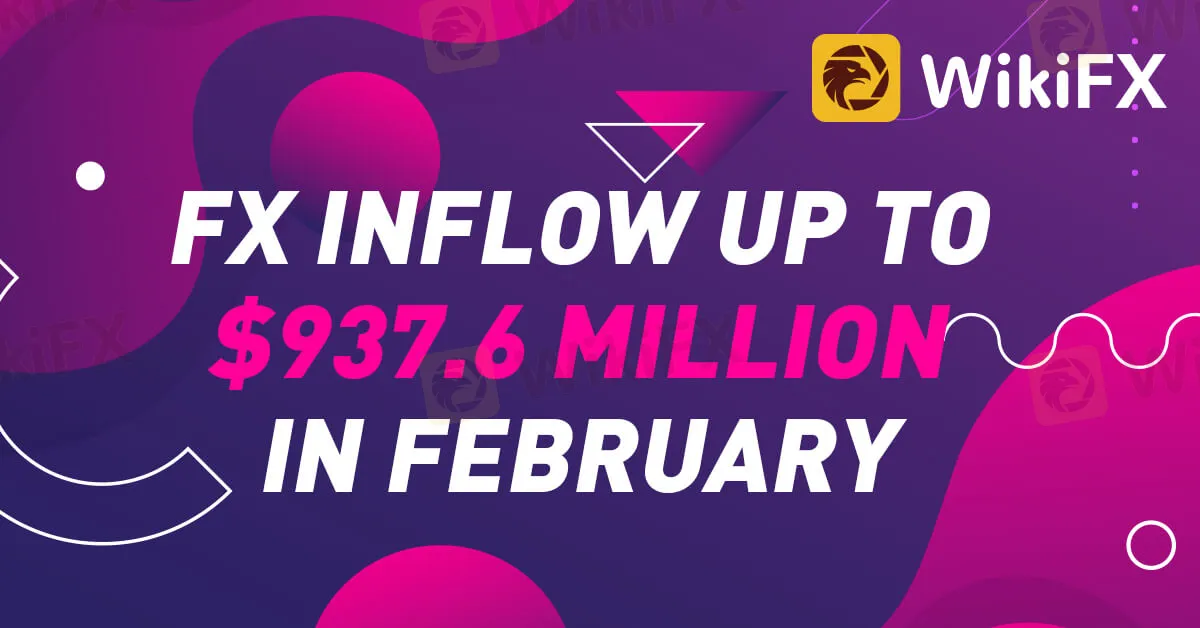简体中文
繁體中文
English
Pусский
日本語
ภาษาไทย
Tiếng Việt
Bahasa Indonesia
Español
हिन्दी
Filippiiniläinen
Français
Deutsch
Português
Türkçe
한국어
العربية
FX INFLOW UP TO $937.6 MILLION IN FEBRUARY
Abstract:The amount of foreign money that entered the Nigeria Autonomous Foreign Exchange market (NAFEX) increased by 10.7% to $937.6 million, despite a 1.14 percent decline in the 30-day moving average of Nigeria's external reserves.

The amount of foreign money that entered the Nigeria Autonomous Foreign Exchange market (NAFEX) increased by 10.7% to $937.6 million, despite a 1.14 percent decline in the 30-day moving average of Nigeria's external reserves.
The 30-days moving average of the external reserves decreased by $421.14 million to $36.648 billion as of March 2, 2023, from $37.069 billion on January 2, 2023.
Data collected in contrast to the $847.20 million reported in January of this year, the total dollar inflows into the NAFEX, also known as the Investors & Exporters Window (IEW), climbed by 10.7% month over month in February.
Higher inflows from both domestic and international sources were the cause of the rise. Domestic sources, which made up 87.1% of all inflows, increased by 11.4% to $816.9 million, while international sources, which made up 12.9% of inflows, increased by 5.9% to $120.7 million.
Analysts at Cordros Research noted that foreign inflows remain significantly below pre-pandemic levels of $1.56 million monthly average reported in 2019. This is because of constraints on forex liquidity, an overvalued currency, and a bad macro story. As domestic investors purchased more equities than they sold for the first time in seven months, foreign participation in the stock market remained low. Foreign investors net sold Nigerian stocks due to ongoing limitations on foreign exchange liquidity, upcoming election uncertainties, and increasing global interest rates.
The experts predict that the short- to medium-term currency liquidity situation will continue unstable in initiatives that would promote dollar inflows into the economy. The continuing global uncertainty and higher global interest rates, which restrict foreign inflows to the economy, contributing causes to the bad currency liquidity conditions. International investors take convincing measures in order to clarify in the future FX regime.
We predict that forex liquidity problems will persist for the foreseeable future because there are no increase in pre-pandemic levels. The medium- to long-term preservation of currency liquidity levels will also depend on FPIs, who have historically maintained supply levels in the IEW, given the slow building of result of output and high PMS under-recovery costs.
The supply and demand dynamics from the previous week were still putting pressure on the foreign exchange market. The naira increased by 4 Naira, or 0.53 percent, week over week to end at N758 to the dollar from N762 the prior week, while it barely fell by 0.13 percent, ending at N461.75 to the dollar from N461.17 to the dollar.
The final spot exchange rate for the 1-Month, 2-Month, 3-Month, 6-Month, and 12-Month tenor contracts on the Interbank Foreign Currency Future Contracts market was N462 to $1. This resulted in contract offer prices of N467.20, N476.27, N486.10, N512.13, and N543.35 being reached. the increased against the dollar by 3.76, 1.54, 1.14, 2.59, and 5.00 percent, respectively, week over week.
With the local currency market's the Supreme Court's recent decision on Friday making the old banknotes legal tender until December 31, 2023, analysts at Cowry Assets Management predict that the pressure on the naira's demand will continue unabated. To monitor currency in circulation and the money supply, the apex has decided to gradually remove the old banknotes from the system, thus it is quite doubtful that it will comment on the court's ruling.

Disclaimer:
The views in this article only represent the author's personal views, and do not constitute investment advice on this platform. This platform does not guarantee the accuracy, completeness and timeliness of the information in the article, and will not be liable for any loss caused by the use of or reliance on the information in the article.
Read more

The Impact of Interest Rate Decisions on the Forex Market
Interest rate changes determine currency attractiveness, influencing capital flows and exchange rate trends. Understanding this mechanism helps investors navigate the forex market effectively.

How a Housewife Lost RM288,235 in a Facebook Investment Scam
A 47-year-old housewife in Malaysia recently fell victim to an online investment scam, losing a substantial sum of RM288,235 after engaging with a fraudulent scheme advertised on Facebook.

Interactive Brokers Launches Forecast Contracts in Canada for Market Predictions
Interactive Brokers introduces Forecast Contracts in Canada, enabling investors to trade on economic, political, and climate outcomes. Manage risk with ease.

Bank Negara Malaysia Flags 12 New Companies for Unauthorised Activity
Bank Negara Malaysia (BNM) has updated its Financial Consumer Alert List (FCA List) by adding 12 more entities, reinforcing its efforts to warn the public against unregulated financial schemes. Check if your broker made the list!
WikiFX Broker
Latest News
Interactive Brokers Launches Forecast Contracts in Canada for Market Predictions
Authorities Alert: MAS Impersonation Scam Hits Singapore
INFINOX Partners with Acelerador Racing for Porsche Cup Brazil 2025
Billboard Warns of Crypto Scams Using Its Name – Stay Alert!
The Impact of Interest Rate Decisions on the Forex Market
STARTRADER Spreads Kindness Through Ramadan Campaign
How a Housewife Lost RM288,235 in a Facebook Investment Scam
Rising WhatsApp Scams Highlight Need for Stronger User Protections
A Trader’s Worst Mistake: Overlooking Broker Reviews Could Cost You Everything
The Daily Habits of a Profitable Trader
Currency Calculator







